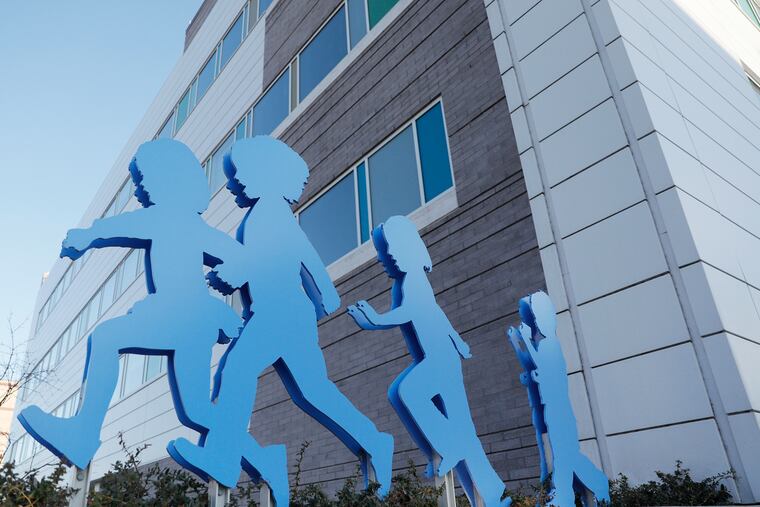Is the ‘tridemic’ winter over? The worst of RSV, flu is behind Philadelphia for now.
There is no vaccine for RSV but pediatricians say it's not too late to get a flu or COVID shot.

The emergency room at St. Christopher’s Hospital for Children looks nothing like it did just a few weeks ago, when parents and coughing children packed in to wait hours for help.
The strain on hospitals was caused by the confluence of three viruses dubbed the tridemic: This fall, children sick with RSV, or respiratory syncytial virus, started to fill up children’s hospitals. Then came the flu, earlier than it did in past years and more aggressive after two winters when influenza was mostly dormant. In the background was COVID-19, which continued to infect about 200 people in Philadelphia every day throughout the fall.
Pediatricians now hope this triple threat is past its peak.
“Generally we’re seeing people very promptly,” said James Reingold, who chairs the emergency department at St. Christopher’s Hospital in North Philadelphia. “It’s an entirely different situation. For somebody who came at the worst of things [the emergency department at St. Christopher’s] would probably be unrecognizable.”
The trends in Philadelphia for flu and RSV are encouraging. Both viruses are surveilled through tests in six hospital labs that report data back to the Philadelphia Department of Public Health. While they don’t account for every case in the city, the data give valuable information about the trends.
RSV peaked first, in early November, and has been declining ever since. Flu followed and peaked in early December.
Craig Shapiro, an infectious-disease specialist at Nemours Children’s Hospital in Delaware, observed a similar pattern from his hospital’s data.
The tridemic was unique in a few ways, he said. In addition to having a large number of cases earlier than expected, originating from multiple viruses, some people — and young children especially — were sicker than in the past.
“We were also seeing more kids with complications from some of these viruses,” Shapiro said. “And I can tell you that most of the children we’re seeing in the hospital who have severe cases of influenza or complication from influenza tend to not be vaccinated.”
He encouraged people to get the flu and COVID vaccines, both of which are effective at preventing severe illness. There is no vaccine for RSV.
While it is good news that RSV and flu rates are going down, public health officials and pediatricians say it’s important to remain vigilant. Ever since the COVID pandemic, respiratory illnesses haven’t followed historic seasonal patterns.
“It is early in the season and we can’t predict with certainty that we won’t see another wave,” said Shara Epstein, the medical director of disease control at the city’s health department, in an email.
» READ MORE: ‘Do I have to get a flu shot?’ Your flu questions answered.
Epstein noted that influenza B, a less common flu virus, often peaks in late winter and early spring. The flu shot protects against both flu A and flu B, and it is not too late in the season to get it, Epstein said.
The overlapping surge of RSV, flu, and COVID cases this year exposed that children’s hospitals have little flexibility when they near capacity, said Reingold from St. Christopher’s. At the peak of the surge, around November, kids were stuck in adult community hospitals for more than two days at times while waiting for a bed to free up in a children’s hospital.
“There is no way of sugarcoating it, this was terrible to have children unable to move to the needed care,” he said. “It definitely showed the importance of getting the flu shot.”